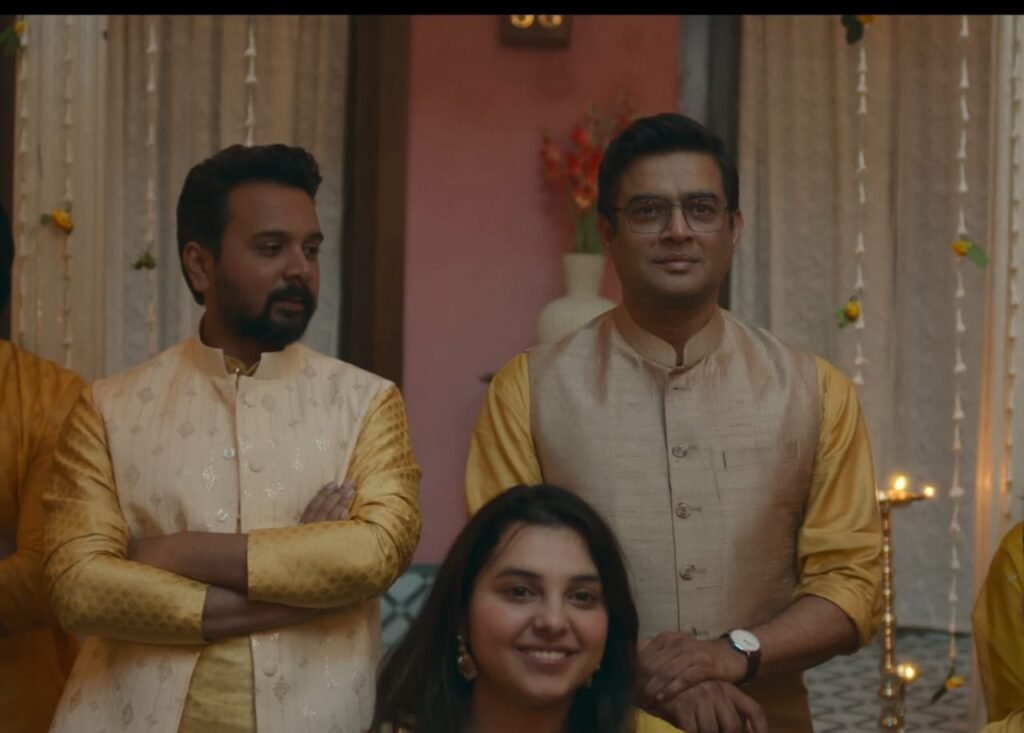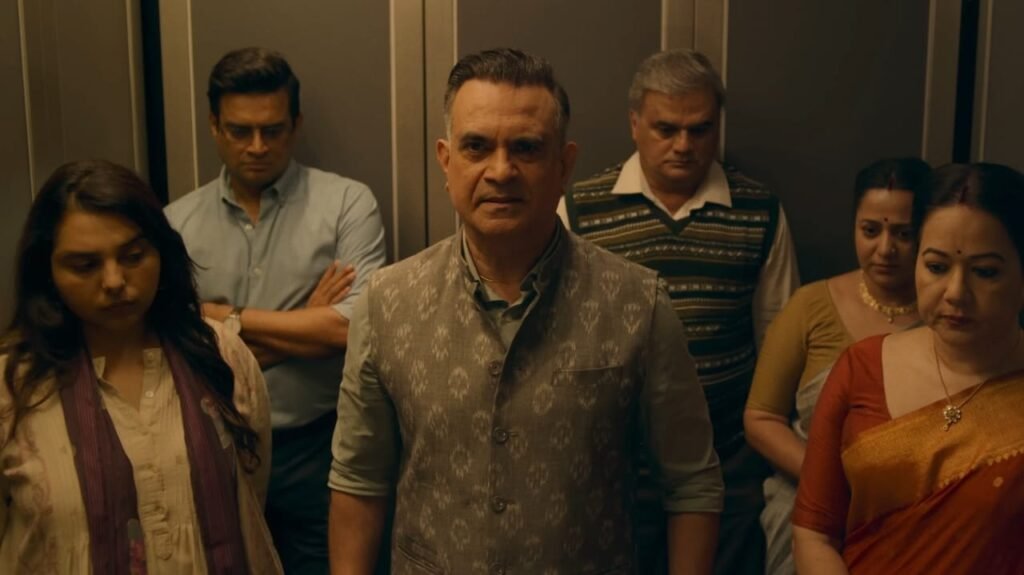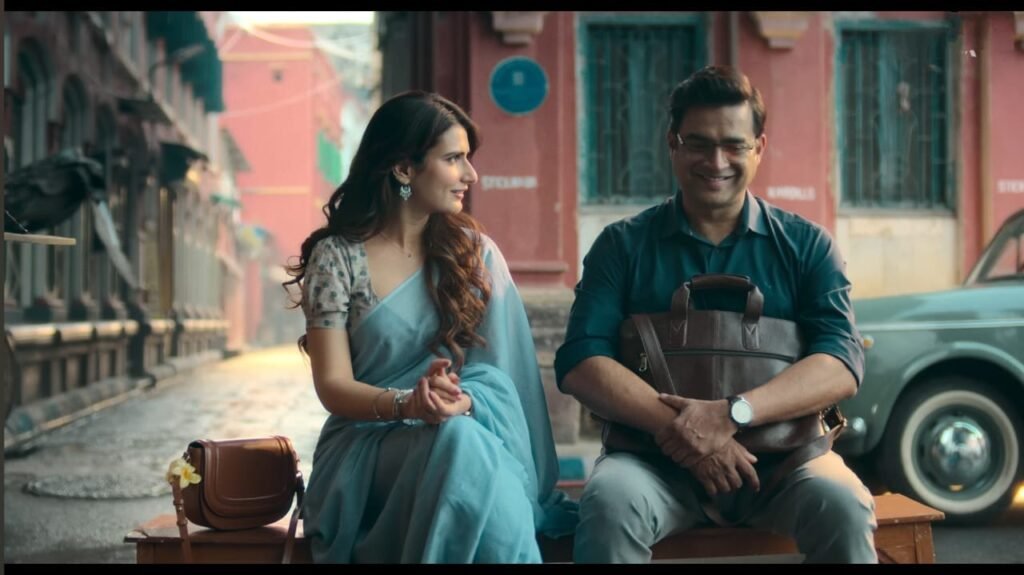Aap Jaisa Koi review: A promising debut and vibrant visuals, but the story lingers in the shadows of Rocky Aur Rani Ki Prem Kahani.
Film has the ability to inspire thought, an emotional reaction, and prompt important conversations within society. Films like Rocky Aur Rani Kii Prem Kahaani achieve this success, as they tackle tough subjects like patriarchy, or gender equality, or vulnerability with a sense of authenticity and flair. Not all films tell the same story as successfully, however. Aap Jaisa Koi sets out to be a love story of modern times, but it ends up losing its footing by trying to grapple with its promise of romantic inspiration.
Plot Summary: A Love Story That Tries to Do Too Much

Aap Jaisa Koi starts with a promising concept – a love story about two people from different worlds, finding companionship outside of tradition. The film shows the beginning of an attempt to grapple with modern relationships, feminism, the notion of second chances, and redefining our expectations of gender roles.
Ultimately, the film is contrived. Aap Jaisa Koi is a knock-off. All the characters and the tension feel borrowed from Rocky Aur Rani, and the pain points or emotional beats are the same. It attempts to wear the skin of progressiveness but it does not capture the heart.
The Rocky Aur Rani Hangover: A Case of Deda Vu
“It’s not homage—it’s repeatology,” a well-regarded critic from Film Companion says.
The film, Aap Jaisa Koi tries almost too hard to recreate the magic of Rocky Aur Rani, even down to musical montages and dorky monologues, but lacks the emotional gut punch and cohesive writing. There is a difference between inspiration and replication… and unfortunately, this film falls under the replication category.
So why does this insistence on this comparison end up hurting the film?
Surface-level feminism: Instead of organically highlighting empowered women, it is INCESSANT about telling us they are, usually without any evidence in character choices.
Performances: Hits or Misses

What Worked:
The female lead: she gives an actual performance and is at times brilliant, especially when asked to embody the feeling of the moment.
The supporting cast adds some comedic momentum and built balance.
What Didn’t Work:
The male lead is underwritten, his transformation didn’t have a proper build up and feels totally unwarranted.
The chemistry between the male and female lead felt staged as opposed to spontaneous.
Forced family drama: the interpersonal conflicts all felt scripted for effect and didn’t seem to be organic to the [extreme tej] story.
Overbearing message: the message was the medium – the storytelling didn’t even matter.
Direction and Screenplay: A Missed Shot
The filmmaker’s vision is obvious: a woke, romantic, and timely film. Vision does not make the film. The film’s screenplay has no flow and keeps hopping from tone to tone, and drowning in uneccesary prolonged dialogue that does not progress the story.
Structurally, the film’s unimpressive. Edits feel cartoonishly abrupt, and the background music is providing weight to the emotional flatline.
What the Film Could Have Done Better
Less preachy, more showing: Let the characters live their ideals instead of announcing them.
Avoid clichés: Use fresh metaphors and scenarios that are relevant and reflect today’s relationship archetypes.
Depth not drama: Favouring depth to find the stakes versus lectures. An agenda can easily stumble on itself when it oppresses the right thinking, though the gender pressures are there on all sides.
Why E-E-A-T Matters in Film Criticism
This review has, centrally to E-E-A-T (Experience, Expert, Authoritative, and Trustworthy), and outlined:
Experience: Based on watching the film and stacking it up against some films released most recently.
Expert: The review is measuring cinematic storytelling, strength in a screenplay, and acting credibility.
Authoritative: Refers to points of view from the upper echelon of film critics and audience reactions.
Trustworthy: Striving to be fair, and have no links to, or promotion in mind.
Real World Example: When it is executed well
Compare this with Rocky Aur Rani where this character of Alia Bhatt can be more organic to the film’s environment. Alia Bhatt’s character just is; she doesn’t state independence – she portrays independence through taking action, demonstrating vulnerability, and self-acceptance.
Final Thoughts: Bold Intentions, Bland Execution
Aap Jaisa Koi had everything it needed to be a standout, socially-aware love story. But it just tried too hard to “say something meaningful,” and forgot to tell a story in the end. It is akin to a heartfelt letter that has undergone a thesaurus, it raises all the right points, but it fails to feel genuine.
FAQs
1. Is Aap Jaisa Koi worth seeing in theatres?
If you enjoy socially relevant narratives and are willing to overlook some clumsy execution, then it is perhaps worth seeing. But, do not expect the same level of depth as Rocky Aur Rani.
2. What is the main message of Aap Jaisa Koi?
It has the basis of a good message that supports gender equality, self-worth, and emotional second chances, but it becomes difficult to understand with the lack of writing clarity.
3. Is the movie a remake of another movie?
The movie is an original film, however it relies heavily on narrative style and tropes borrowed from recent notable films and similar films, like Rocky Aur Rani.
4. How is the acting in the film?
A mixed bag. The female lead excels in parts, but the male counterpart fails to deliver any emotional range or adequate screen presence.
5. Why is the movie being compared to Rocky Aur Rani?
Because a number of its themes, visual aesthetics, and style make it somewhat of a derivative of a number of recent films, especially Rocky Aur Rani. Unfortunately, I don’t think it works.
